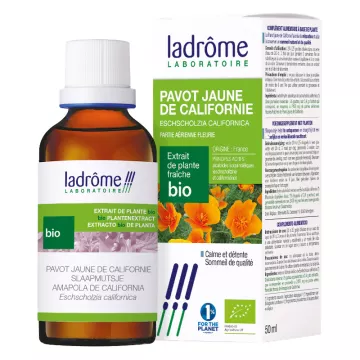Having trouble falling asleep? You're not alone. Whether due to daily stress, hormonal upheavals such as menopause, or a hectic lifestyle, sleep disorders affect many people at different stages of life. At Soin et Nature, we have carefully selected phytotherapeutic solutions based on medicinal plants with recognized soothing properties. Designed to act gently, these formulas naturally target the nervous system, helping to facilitate sleep onset, prolong deep sleep phases and reduce nocturnal awakenings, without causing dependency or undesirable side effects. Valerian, passionflower, hops and lemon balm are just some of the plants you can use to help you enjoy a peaceful, restful night's sleep.
More details
Discover our new range of phytotherapeutic products for effective natural treatment of sleep disorders. Fatigue on waking, drawn features, drowsiness during the day - your nights are restless and your sleep unrefreshing. Winter is the season for sleep and recovery. There are many signs that this is the case: night-time is longer, animals hibernate, nature provides us with energetic dried fruits rich in fatty acids and fortifying, nourishing vegetables.
All those who suffer frominsomnia, whether complete or partial, and those whose sleep is disturbed or agitated, despite their best efforts, fail to take full advantage of the opportunity offered to them in winter. Stress, anxiety, anguish, waking up at night. The causes of insomnia can be varied. But by choosing phytotherapy and the right plants, we can help you fall asleep and get back to sleep.
Sleep disorders are generally temporary. Don't throw yourself on the heavy artillery. Try gentle methods! Most plants have the advantage of having few or no side effects, and are not addictive. The plants proposed for sleep disorders are essentially sedative (calming ) plants such as valerian, passionflower, hop, lemon balm and hawthorn... They are used separately or in formulas composed of several plants. These plants are most often offered in the form of medicines or extracts in capsules, tablets or infusions.
Sleep is governed by 2 processes:
Clinically, there are several types of insomnia:
The most frequent type of insomnia is transient and occasional, lasting from a few nights to several weeks. They may be related to a recent event (reactive sleep disorders) or to an upcoming event (insomnia due to anxious anticipation). They are favored by noise pollution, professional or family worries, a long nap or jet lag. On the other hand, we find chronic insomnia, defined by sleep disturbance lasting more than a month.
They are related to marked anxiety disorders, and frequently result in somatization (functional cardiovascular, digestive and muscular manifestations).
Sleep disorders reflect an imbalance in the sleep/wake balance, and may correspond to a desynchronization of circadian rhythms: melatonin plays a key role here, as a chemical mediator of the synchronization of biological rhythms and modulator of other neurotransmitters, and through its neuroendocrine and sleep-related role.
Circadian rhythms are dysfunctions between sleep and wake rhythms.
This occurs when you travel rapidly, crossing more than two time zones. In particular, travel to the East (which advances the sleep cycle) has been found to cause more severe symptoms than travel to the West (which delays the sleep cycle).
These symptoms will last for the duration of the recovery period, which varies from one individual to another. The person will be tired and irritable due to unstable rest.
These problems are proportional to the frequency with which schedules are changed. Sleep is of poorer quality, with noise and light interfering with the rest period; the sleep period is too short, we speak of "chronic deprivation", with the appearance of various disorders (irritability, depression, gastrointestinal disorders).
It's difficult to fall asleep, and insomnia tends to become chronic, leading to fatigue, difficulty concentrating and mood disorders.
Insomnia is the absence or insufficiency of sleep, which prevents proper repair. It is interspersed with early awakenings.
Sleeplessness is the most common form of insomnia. This form of insomnia can also occur in the second half of the night, after 3 a.m.: the subject wakes up anxious or dominated by obsessive thoughts, and ends the night with a poor quality sleep. This can lead to daytime headaches, irritability and drowsiness.
The nocturnal cogitation causing insomnia is often due to a collapse of GABA.
Soin-et-Nature offers a wide range of food supplements dedicated to managing stress and improving sleep, to support your daily well-being. Here are the main categories available:
These food supplements available on Soin-et-Nature offer natural solutions to specific stress and sleep-related needs, promoting lasting well-being.